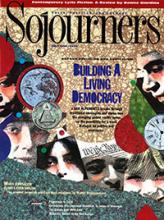The world for which NATO and the Warsaw Pact were created has disappeared. The Warsaw Pact has disappeared, too, except on paper. These great events were sparked by the courageous and astonishing acts of men and women who created a reality to which leaders had to respond.
The suddenness of the events of 1989 has left leaders reeling everywhere, but midway into 1990 the bureaucrats and politicians seem to be firmly in control of the historic transformation now under way. So far neither the popular movements that precipitated the fall of communism in Eastern Europe nor the peace movement in the United States has been able to put a post-Cold War vision of a united Europe onto the political agenda.
The result is that the "new thinking" in the West bears a striking resemblance to "old thinking. " Because of a widespread concern about the power of a reunited Germany and the extremely weak bargaining position of Mikhail Gorbachev, or any Soviet leader, the position of the United States is that a reunited Germany should be gathered into NATO. For practical purposes there would be one military alliance in Europe, one that was organized to oppose a threat that was always exaggerated but has now virtually disappeared. (The prospect of fighting a war across more than a thousand miles of hostile Polish and German territory would give even the most rabid general pause.)
Politicians such as President Bush have an interest in "playing safe," in deprecating the "vision thing," in accommodating the radically new world now unfolding into a comfortably familiar bureaucratic worldview. The nationalist governments of Britain and France have their own interest in resisting the vision of a European-wide security system, and the German and Soviet governments have an interest in going along with the emerging official consensus so as not to alarm any of the other countries.
Read the Full Article
